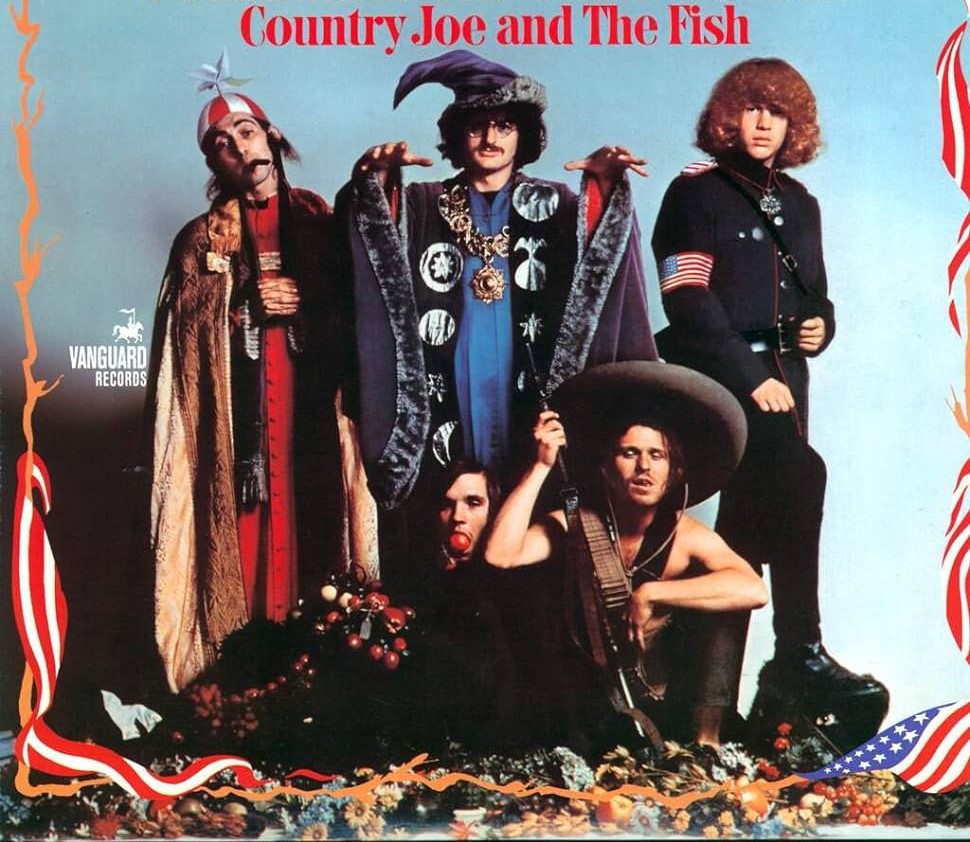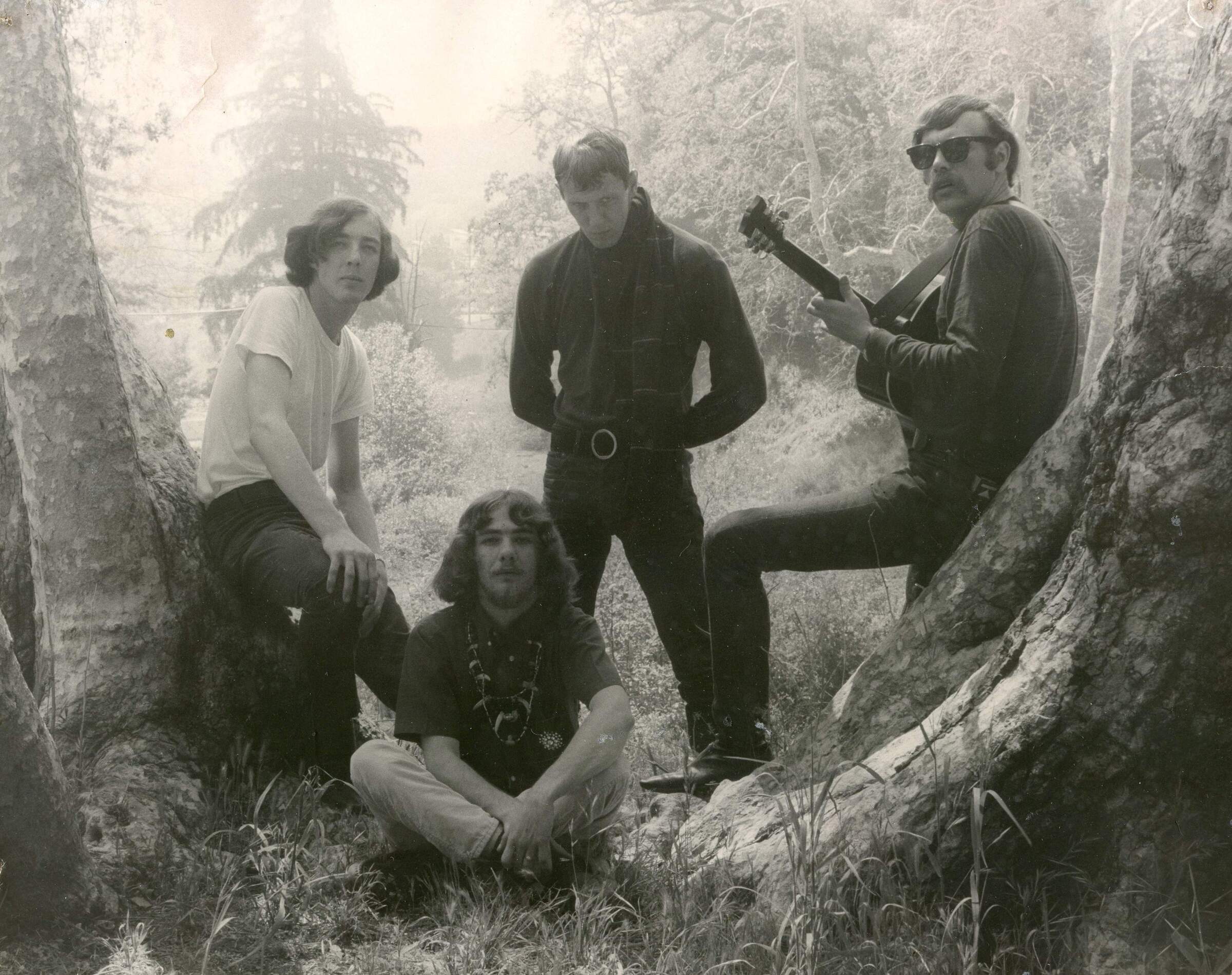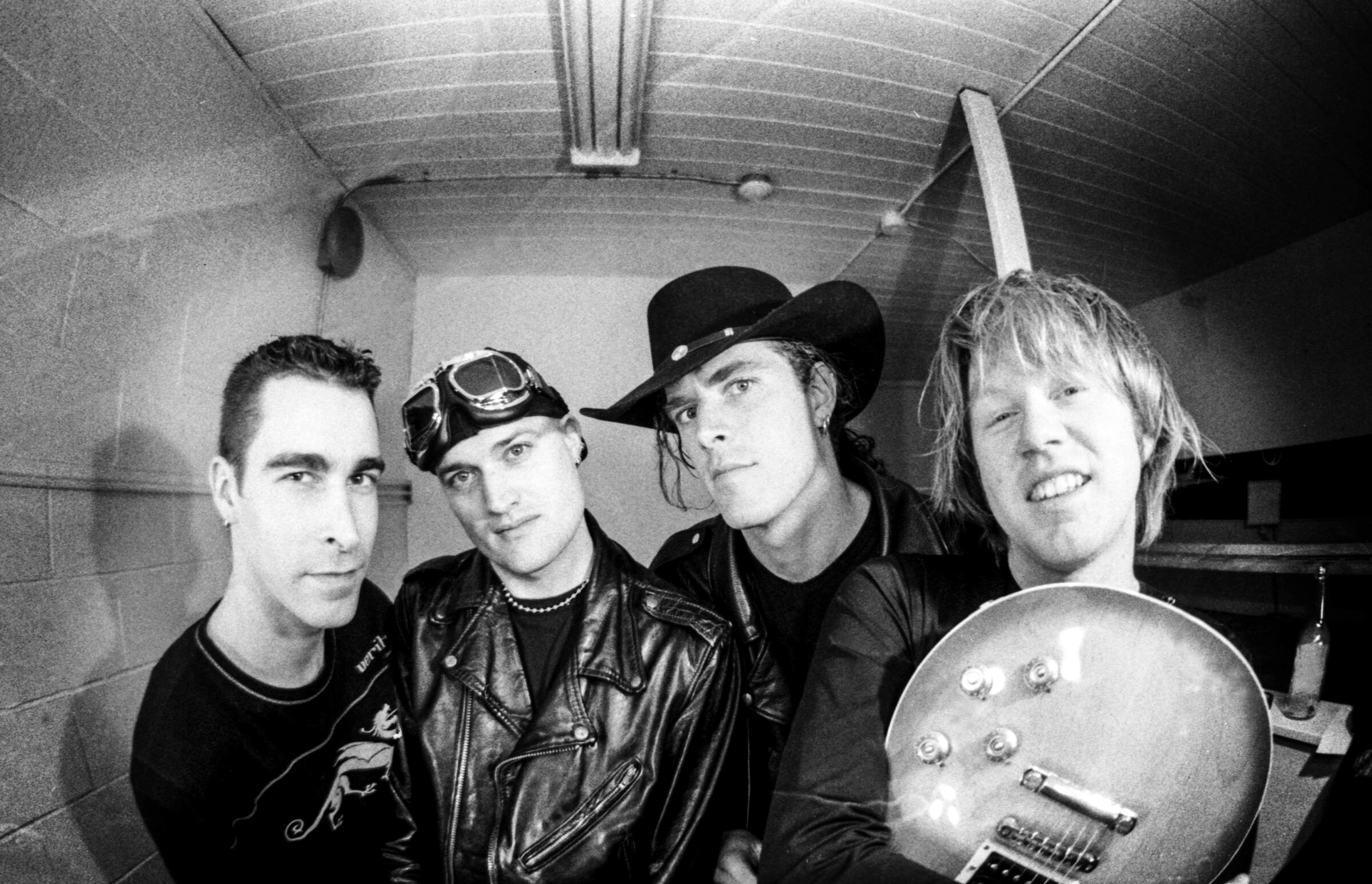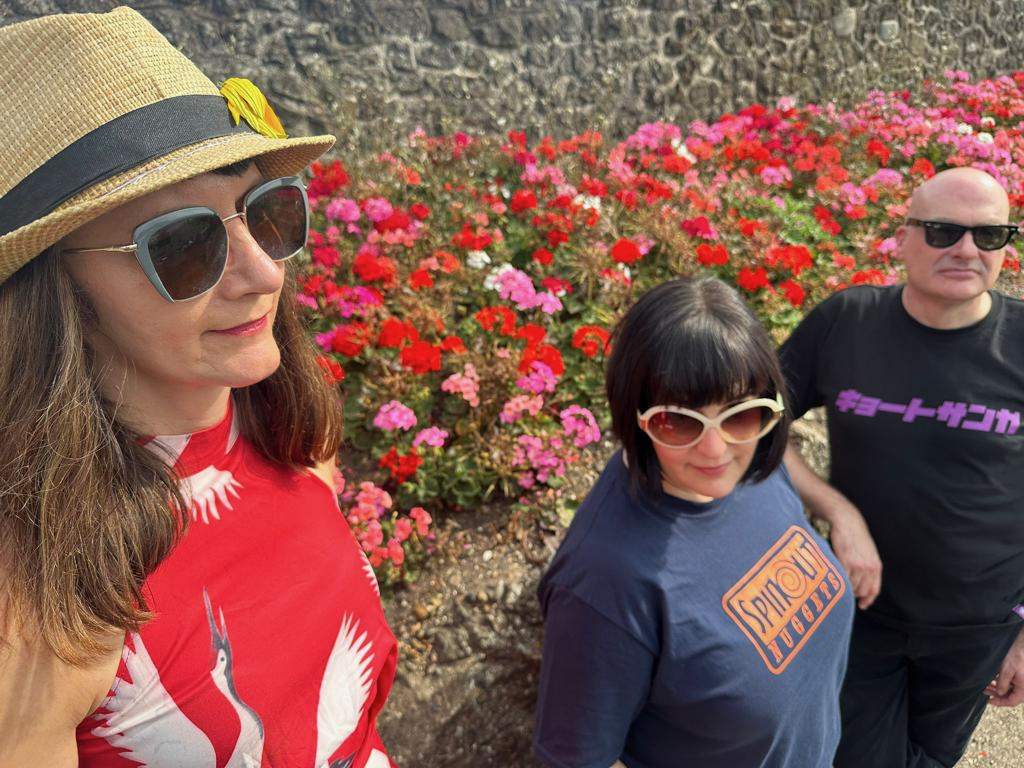Country Joe and the Fish | Interview | David Bennett Cohen
David Bennett Cohen is best known as the original keyboardist for Country Joe and the Fish from 1965 until 1969.
Country Joe and the Fish was an American psychedelic rock band formed in Berkeley, California, in 1965. The band was among the influential groups in the San Francisco music scene during the mid- to late 1960s. David Bennett Cohen originally began playing guitar and later joined the band. He continues to play today.
“Monterey Pop was and still is the best gig I’ve ever played”
Thank you for taking your time. How are you doing?
David Bennett Cohen: I’m doing well. Thank you. It’s a pleasure to be in your magazine.
Joe McDonald and Barry Melton first started as a duo and played in the so-called “Teach-in”. It was not until probably the third lineup change that you joined them. It also featured Paul Armstrong, John Francis Gunning, Bruce Barthol. This was around December 1965. Later Paul and John were out and you brought Chicken Hirsh. But let’s start at the beginning. What can you tell us about growing up?
I was born and raised in Brooklyn, NY. I know that it’s cool to be from Brooklyn now, but back then, I just wanted to get out. I started taking piano lessons when I was seven, but I hated them. I really was attracted to music, but I didn’t like the fake classical that I was taught. And I never built up a repertoire, just learned that lesson and went on to the next one. Boring. Then, when I was about thirteen, I discovered the guitar. That began a lifelong love affair. I couldn’t not play. I would get home from high school around 3:30, go up to my room and play the guitar for six or seven hours, do about 15 minutes of homework and go to bed. Every Sunday I went to Washington Square Park and played folk music with whoever was there. And there were some great players: Josh Rifkin, Winnie Winston, Dave Van Ronk, Happy and Artie Traum, Paul Prestopino, Eric Weissberg; the list goes on. Sometime in my early teens I saw Meade Lux Lewis on TV and it just knocked me out. I said to myself that this is what I have been looking for. But there was no one to teach that music, so I learned as much as I could from records. But the guitar was my love.
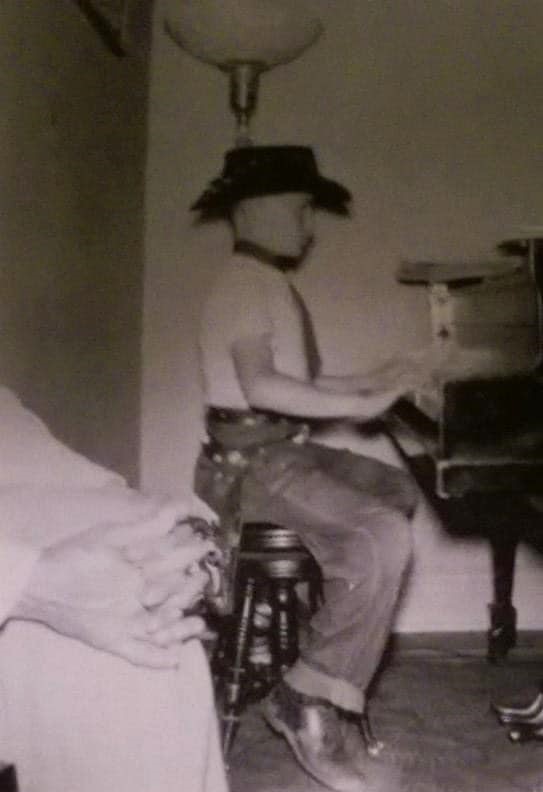
“I moved to the San Francisco Bay Area and started hanging out in the music scene”
Were you in any bands before joining Country Joe & The Fish?
My first band was called The Lane County Bachelors and it was a folk group in NY with Eric Nagler and Artie Traum. Lasted long enough for us to do, maybe, three or four gigs. A few other folkie groups followed. Then, in 1965, a girlfriend took me to see The Beatles movies. I had been avoiding The Beatles and rock ‘n’ roll in general. I just wanted to play folk music – bluegrass, old timey, and blues. But those movies changed my life. It just looked like so much fun. So, then and there, I decided that I would become a rock star. I even told a bunch of people. Surprisingly, many of them still remember that. I moved to the San Francisco Bay Area and started hanging out in the music scene. I joined a band called Blackburn and Snow for a few months. That’s where I met and first played with Chicken Hirsh. It was during this time that I met and became friends with many of the Bay Area musicians. Jerry Garcia and Jorma Kaukonen and many others. It was a very wonderful scene. A creative moment that has carried us to this day.
You were part of the band from December 1965 to January 1969.
When I got to Berkeley, I started hanging out in the music scene. There was a club called The Jabberwock that was a gathering place. In the corner was an old, beat up piano that I would sometimes bang on – I would play some boogie-woogie, or, maybe, ‘St. Louis Blues’. But I wasn’t serious about it. But Barry Melton liked the way I played the piano and then Bob Dylan came out with ‘Highway 61 Revisited’ and Joe McDonald decided that he wanted an organ in the band. Barry said, “Well, David can play the organ,” which was totally untrue. I actually never played organ. The only organs I knew were the ones in church or the theatre and they were completely intimidating. But, I wanted the gig. I started out playing guitar because I didn’t have an organ, but the band bought me a Farfisa organ and I started playing that. Of course, I had no idea of what to do with it, so I started to steal my own guitar licks. I would get these reviews saying what a unique style I had. The reality was that I had no idea what I was doing. Of course, eventually I did learn to play it. Back then, the band was Joe McDonald, Barry Melton, myself, Bruce Barthol on bass, John Francis Gunning on drums, Paul Armstrong on whatever. He used to play bass when Bruce Barthol played harmonica, guitar sometimes, but mostly I remember his energy, jumping around on stage playing the tambourine and singing harmonies.
Where were you living?
I’m not exactly sure about the way all this went down, but I think that Bruce was living behind The Jabberwock in an apartment. Barry Melton moved in, then Joe McDonald. Maybe Paul Armstrong was there too. It was definitely not like the Dead or the Airplane, but more separate. But, you have to remember that this was a community that was evolving and we were all together most of the time, anyway.
In 1966 you released your first EP, which also featured Paul Armstrong and John Francis Gunning. It was released on ‘Rag Baby’, a label that Joe McDonald founded.
Joe McDonald had gone to NYC to see if he could join the scene there and Barry Melton went with him to try to keep him thinking about the band. When they came back, Ed Denson was with them. He agreed to manage us if Joe would commit to the band. Soon after that, we were in the studio recording the second ‘Rag Baby’ EP. The first was “CJ & F” as a jug band. I was not on that. When I joined, along with John Francis Gunning, the band evolved into a rock band. The sessions went fairly smoothly, considering the fact that we had no idea what we were doing.
It featured two of your signature songs ‘Bass Strings’ and ‘Section 43’.
I did not write those songs. Joe wrote them. Joe wrote all the really good songs. Well, ‘Bass Strings’ was a code for pot that Barry Melton and Bruce Barthol used when they were in LA together. ‘Section 43’ is more complicated. It is a beautiful piece of classical complexity. Years after we recorded it, we discovered that ‘Section 43’ is in the California penal code for drugs. Pretty amazing coincidence.
How did you get signed up by Vanguard Records?
Sam Charters, who I knew from the Washington Square scene, was working for Vanguard and really liked Joe McDonald’s songs and the sound of the band. They had this really great reputation as a folk label, but apparently wanted to branch out into the new rock ‘n’ roll scene. I don’t know all the details, but I think it was one of the worst contracts ever signed. You’ll have to speak to Ed Denson or Joe McDonald to get the particulars.
In 1967 you released ‘Electric Music for the Mind and Body’. What are some of the strongest memories from producing and recording it?
Thank you for the kind words. After we signed with Vanguard, we went into the studio to record, but there were some issues. Sam Charters didn’t like John Francis Gunning’s drumming – too inconsistent and he had some issues with time. John Francis Gunning felt something, of course, because no one was being particularly subtle. So, he came in complaining of a toothache. As the session got under way, Sam and Joe told him to play simpler. No, simpler, until, finally, John Francis Gunning threw his sticks down and said something to the effect that his principles were being compromised and stormed out. The next day the session was cancelled and the day after that, we hired Chicken Hirsh to play drums. We went away for three days to a place called the Barn in Santa Cruz where we used to play and rehearsed and rehearsed and played at night. When we got back to Berkeley, we were ready to record and we finished it in three days.
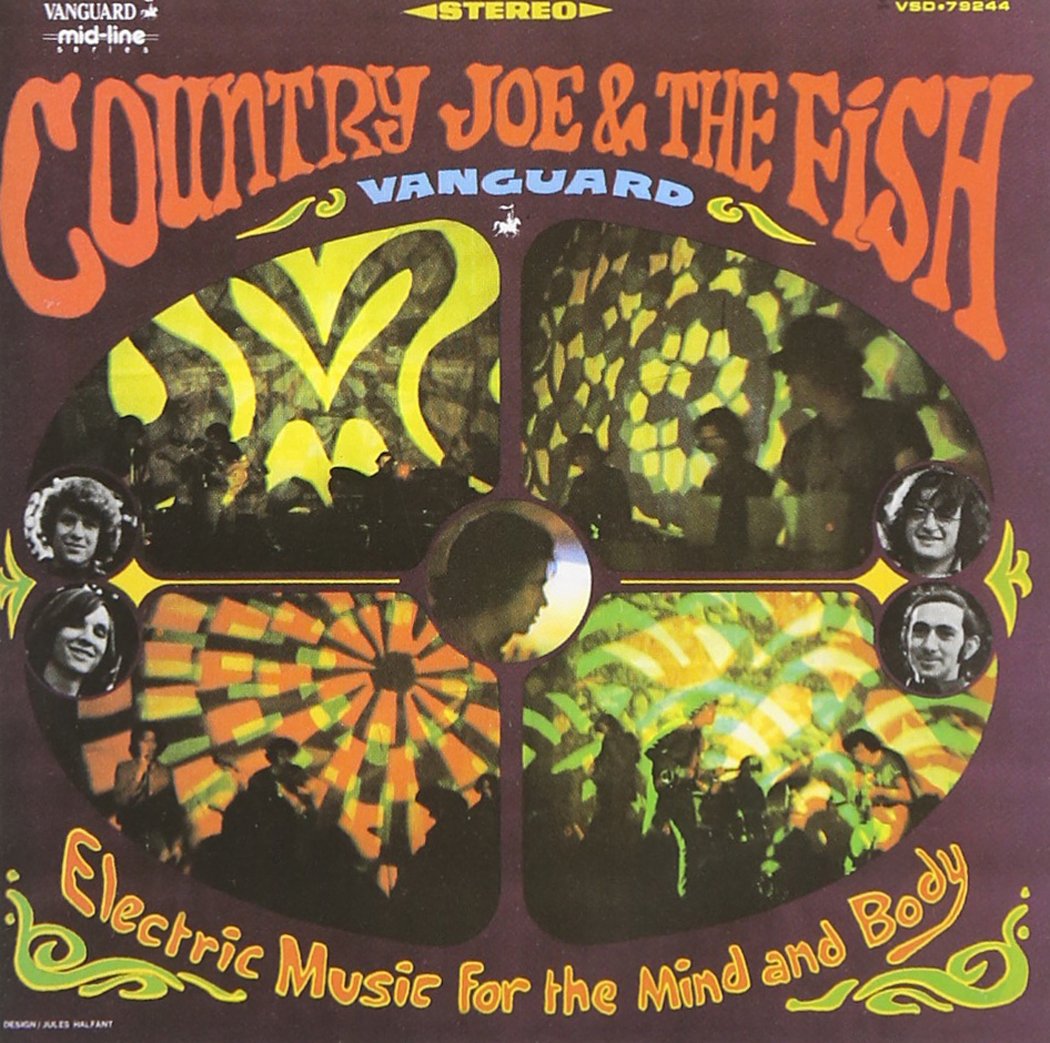
What gear did you use?
I used a Farfisa organ and a Gibson ES-345 guitar. I ran both through Fender Twin Reverb amps. You have to talk to the other guys about their equipment.
At what studio was it recorded and how do you remember recording sessions?
Sierra Sound Recording. It was where we recorded the electric EP and the owner was able to buy some better gear because of it. I think we used an 8 track machine. I don’t remember doing overdubs, but we must have.
What can you tell me about the cover artwork?
Not really. Just some psychedelic photos of the band playing, with our head shots stuck on. The photos were taken at the Barn – that much I do remember.
Was there any concept behind it? Is the album consisting mostly of Joe McDonald’s and Barry Melton’s ideas or did you also contribute?
I’m probably going to get into trouble for this… Joe was the driving force behind the band. He wrote all the good material. He wrote about 90% of it. He was the band leader, although, sometimes, he didn’t want to be. Barry Melton was a band member, like the rest of us. Country Joe was Country Joe, but the Fish was the rest of us. The band that played at Monterey Pop was the “classic” lineup and even though we didn’t play the Woodstock Festival, it is my opinion that when people remember “”CJ & F”,” it’s the music from the first two albums that they refer to.
There were two versions of the LP and I prefer the mono version. How about you?
Well, I’ve got to say that when I listen to music, I listen to the music rather than the “sound.” Of course, if the sound is so bad that it impacts the music, that’s not good. So, that said, I really couldn’t tell you the difference.
What was the response when the album was released?
The response was phenomenal. The critics loved us. We sold pretty well, but nowhere near a gold record. But we were on the map and started touring extensively all over the place. The crowd reactions were always positive.
‘I-Feel-Like-I’m-Fixin’-to-Die’ was your follower. What do you remember from recording it? Around this time you had some crossfire in the band and Joe quit the band for a while. Later he came back and you started recording ‘Together,’ and Bruce was replaced by Mary Ryan on bass. ‘Together’ was your last album, right?
‘Fixin’ to Die’ was on the first EP. The band was an acoustic jug band. When we started recording it for the second Vanguard album, we were stuck as to what to do. We ran around for several hours and took a break. I sat down at the piano in the studio and started playing it a la Ragtime and Sam jumped up and said, “That’s it!” So that’s how it evolved.
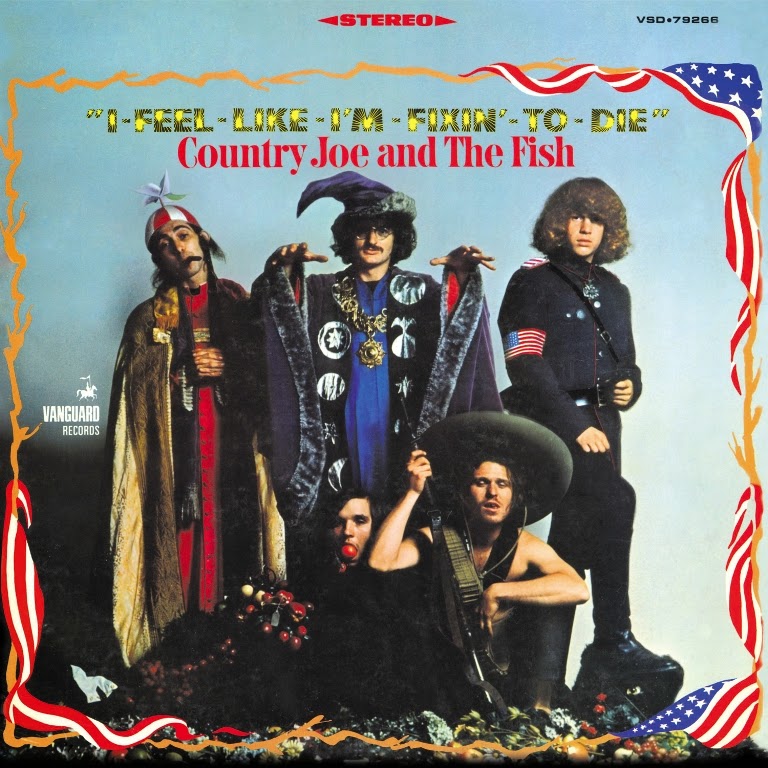
But, because it was Country Joe and the Fish, and there happened to be an electric calliope in the studio, well, you get the idea. Recording the second album was painful. Joe McDonald was thinking more and more about a solo career and felt that the band was holding him back. Bruce Barthol got fired in the summer of 1968 and Mark Ryan came on board, but it was a big mistake. He had a hard time distinguishing reality from fantasy and didn’t play very well. Then, just before we were scheduled to go to England for a tour, he got sick, so, since Bruce Barthol was over there anyway, we added him to the lineup for the tour. Together was the last album that Bruce Barthol was on. I was on ‘Here We Are Again,’ although not on all the cuts. I think Chicken Hirsch was on it too.
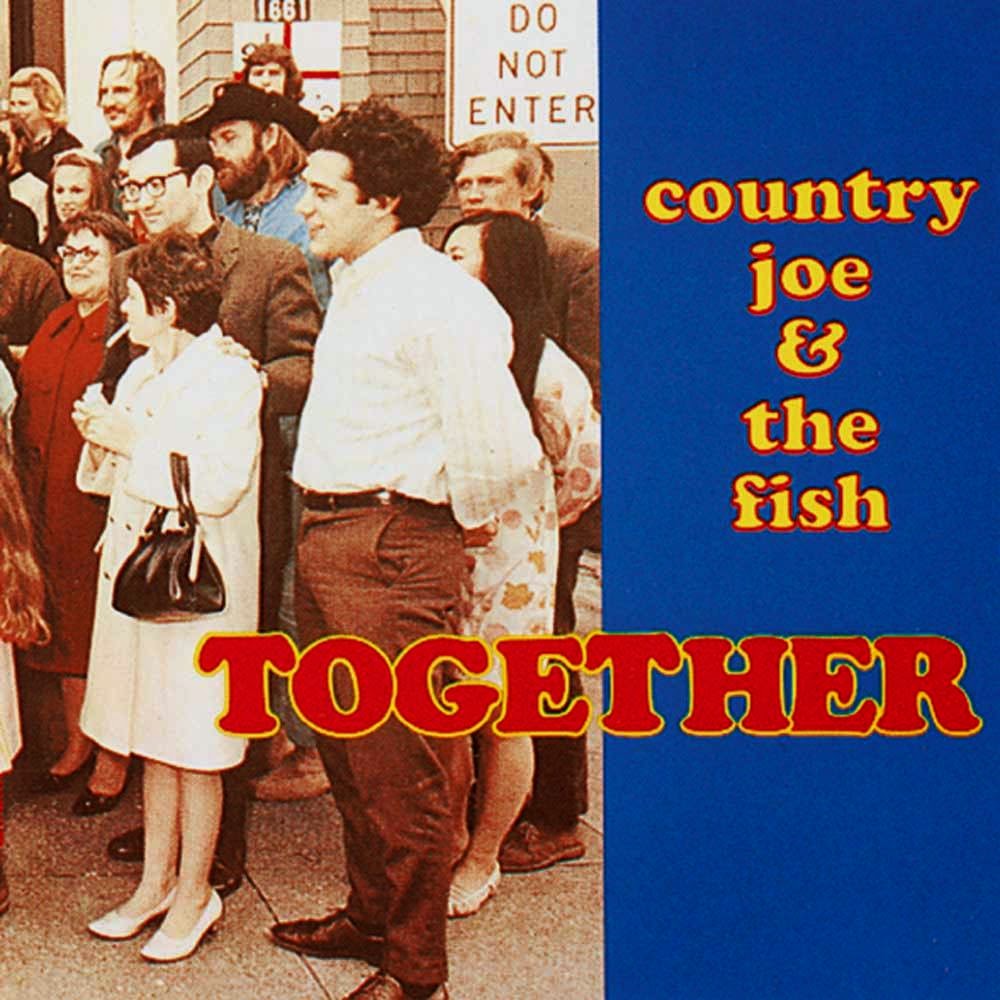
What was the main reason for your departure?
I felt that the music was becoming kind of crass. And there were some personal reasons, too, that I would rather not go into.
What do you remember from the Monterey Pop Festival?
Monterey Pop was and still is the best gig I’ve ever played. It was magical and a moment in history that no one can deny. It was designed by musicians and we were treated like royalty. There’s so much to say about it, from Jimi Hendrix and Janis Joplin to all the booths and hippies walking around, amazed at seeing so many of us in one place. I remember standing backstage, gabbing with a bunch of musicians when suddenly we were all tapping our feet and just pulled to the front – it was Booker T. & the M.G.’s getting ready to back Otis Redding. I remember sitting in our hotel room with a bunch of guys when suddenly there’s a pounding on the door and Al Kooper comes in saying how he’s just heard the best guitar player he’d ever heard – better than Bloomfield, better than Clapton – Jimi Hendrix. Then rushing out to the next room and, bang, bang, bang, to tell someone else. I remember Jimi Hendrix going up to Owsley and saying, “I can’t get high,” and Owsley giving him some acid. And a half hour later, the same thing happened. And, another half hour, again. There’s so much more.
What happened next? I know you joined The Blues Project.
I joined The Blues Project in 1971. The band was Danny Kalb on guitar, Roy Blumenfeld on drums, Don Kretmar on bass and me on piano. Then, after a few months, Tommy Flanders joined as vocalist. The band was HOT! But too crazy to move in one direction. I played with Mick Taylor. That was wonderful. What a great musician. Colin Allen played drums and Roger “Jelly Roll” Troy played bass and sang. I played and recorded with Bill Perry. A real talent. He passed away a while ago and I miss him. While I think about these bands, so many stories come to mind. If it’s OK with you, I would like to take some time and write some for you.
You are still very active. Recently you wrote a book about teaching the piano blues.
I have 3 CD’s out. The first one solo piano is on Rag Baby Records, Country Joe McDonald’s label and it’s called, David Bennett Cohen At the Piano.
The second one is called In the Pocket and it has a band on it. These two are instrumental.
The third one is Cookin’ With Cohen and has a band, as well. Some vocals, but not by me. This CD was in the running for a Grammy nomination. It didn’t get the nomination, though. I have two instructional books/CD sets on blues piano, one on rock ‘n’ roll piano, one ragtime piano. I have a 4 DVD set on blues piano and one on Hammond organ. These are all on ‘Homespun Tapes’. I’ve been with them since 1975. I currently play regularly in the NYC area. I play with several bands, plus, every now and then, I front my own band. I have several private piano and guitar students, plus a network of students around the world from my instructional products. I’m having a ball. No matter what happens, I still get to play the blues…
Any regrets?
Not really, but it’s hard not to. There are definitely several “in only’s,” but not real regrets. I’m happy with the choices I’ve made, even if some of them haven’t been the best. I have been a member of the SGI Buddhist organization for 27 years. We chant “Nam Myoho Renge Kyo” and it has made a profound impact in my life.
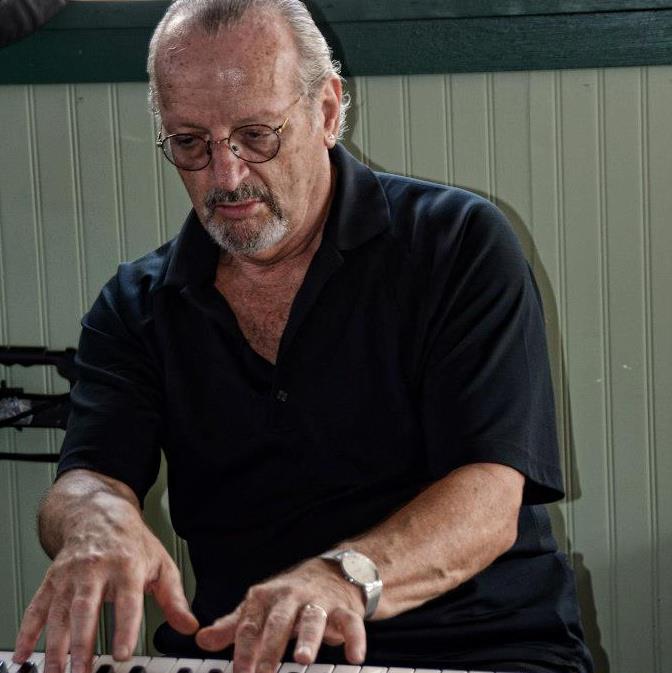
Thank you. Last word is yours.
The world is suffering. Music is healing. I think that there must be a formula there, somewhere. Thank you for the interview.
Klemen Breznikar
David Bennett Cohen Official Website

